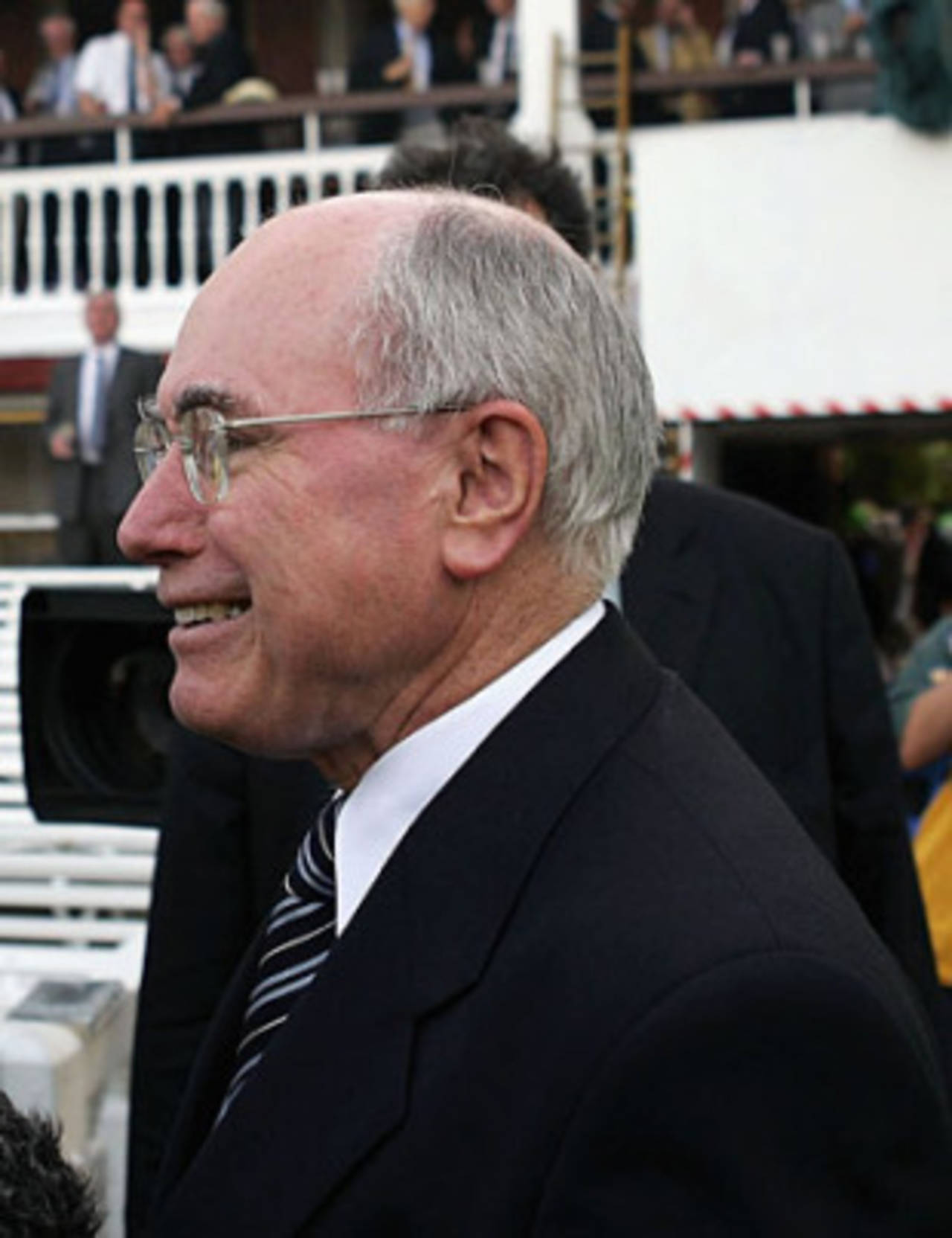An outcome that could drag cricket to the dark ages
Sure, a candidate can be rejected, but there need to be compelling reasons for doing so, and those need to be made public
Sambit Bal
30-Jun-2010

It's premature to proclaim an official split, but on the Howard issue it was evident who stood where • Getty Images
The saddest thing about the rejection of John Howard's nomination to the vice-presidency of the ICC is that, prima facie, the cricket world has split, once again, on the lines of race. For years that was cricket's ugly truth: the white nations v the rest; the us v them syndrome underpinned every major conflict in the cricket.
But in recent years cricket seemed to have moved away from post-colonial angst into the lap of naked capitalism. Self-interest remained the guiding principle, but alliances based on commerce rather than race seemed far more palatable. The use of the term Asian Bloc - it had a pejorative ring to it - became rarer as India and Australia, the richest board and the strongest team, moved closer.
It's premature to proclaim an official split or speculate what immediate impact it will have on global cricket, but on the Howard issue it was evident who stood where. Australia and New Zealand stood by their nominated candidate, and they had only England by their side.
There are different ways of looking at it. One is this. Seven members of the ICC board didn't want Howard as vice-president. Clearly, he shouldn't then have been vice-president and president-elect. Democracy doesn't always produce the best outcome, but who'd rather have the other system?
Howard was not the best candidate in the eyes of the cricket world. Even between Australia and New Zealand, he was not the unanimous choice. New Zealand wanted John Anderson, the former chairman of the New Zealand board and a proven cricket administrator; and most other members would have preferred him. But Howard was nominated through a rigorous arbitration process, and New Zealand accepted the verdict with good grace.
Similarly, another process has been completed now. Howard's candidature needed to be ratified by a two-thirds majority - it might never have been applied before, but the provision exists. All over the cricket world, non-executive positions - presidents, chairmen - come through an electoral process, which rarely throws up the best possible candidate. Pawar became BCCI president that way, as did Giles Clarke.
There were clear signs for months that Howard's candidature was unlikely to go through, but CA chose to ignore them. Cricket South Africa chairman Mtutuzeli Nyoka wrote to David Morgan, the then ICC president, pointing out that an "overwhelming number of directors were opposed to Howard". It was strong letter which accused Morgan of acting unconstitutionally, a charge Morgan denied equally vehemently. And the Sri Lankan board openly said that they would vote against Howard. Cricket Australia was within their rights to stick by their man. Howard himself made a trip to Zimbabwe, another known opponent, to lobby support. Evidently that mission failed.
Since Howard had no administrative experience in sport and his association with cricket was limited to his self-professed love for the game, it is reasonable to assume that Cricket Australia chose a career politician in recognition of the political nature of the ICC. And now that he has been eliminated by a political process, CA should cop it in the same spirit.
In a political process, even if it is mere posturing, everyone knows who stands for what. In Howard's case, no one, apart from the Sri Lankan board, has articulated the opposition to him.
There is one crucial difference, though. In a political process, even if it is mere posturing, everyone knows who stands for what. In Howard's case, no one, apart from the Sri Lankan board, has articulated the opposition to him. And the Sri Lankan opposition - that Howard came from outside the realm of cricket administration - was so flimsy that it can't be considered a powerful enough argument to disregard a candidate chosen by two members following due process.
The worst part of the campaign against Howard has been the surreptitious and opaque manner in which it has been conducted. Cricinfo's correspondents, despite repeated attempts, have failed to elicit responses - except from the Sri Lankan board - about why Howard was considered unfit to hold the job.
While the provision for rejecting a candidate exists, the ratification process has always been a formality. For disregarding an established convention, there must not only be a strong enough case, it must also be made public. Even the most dreaded criminals are not hung without being assigned a reason. John Howard, whether you agree with his political stand on Zimbawe's regime, or his support for George Bush, or his personal views on Muttiah Muralitharan's bowling action, deserves the courtesy of being told, as do Cricket Australia and Cricket New Zealand.
Or is it that the reasons are so hollow and petty that no board wants to put its name to them? Gideon Haigh has already pointed out,, forcefully and with rigour, the shallowness of some of the possible objections. I don't agree with him on every count. Cricket Australia, I believe, was wrong to pick a candidate who was potentially divisive, but the intrigue and back-room games that preceded the rejection of his candidature, have not merely been discourteous but threaten to drag cricket back to the age of acrimony and mistrust.
Sambit Bal is the editor of Cricinfo